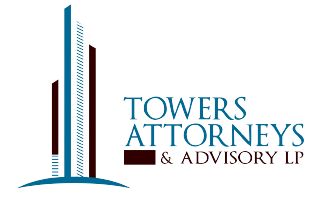By Archibong Edet esq.
In today’s digital age, the protection of personal privacy has become paramount.
This article serves as both a cautionary tale and a legal perspective on the issue of blackmail, particularly concerning the unlawful possession and distribution of intimate photographs or videos without consent. The focus will be particularly on the Cybercrimes (Prohibition, Prevention, etc.) Act of 2015.
It is not uncommon for individuals, especially women, to find themselves in a distressing situation where someone possesses their intimate photos or videos(nudes) and exploits these materials for malicious purposes. The motives behind such actions may include extortion for money, demands for sexual favors, or threats of exposure.
There is a story of a lady who found herself in such a situation. Rather than succumbing to the demands of her blackmailer, she took matters into her own hands. She chose to reclaim her agency by voluntarily uploading the intimate photos online. In doing so, she effectively rendered her blackmailer powerless.
While this may not be an easy or best path to take, it demonstrates an important principle – never succumb to the terms of a blackmailer.
Blackmail is not only a morally reprehensible act, but it is also unlawful. Any individual who engages in blackmail or publishes intimate photos or videos of another person online without their consent is committing a crime. In the context of Nigerian law,such actions can be punishable under Section 24 of the Cybercrimes (Prohibition, Prevention, etc.) Act of 2015 or any other relevant legislation in force
in Nigeria. The section reads in part thus ‘Any person who knowingly or intentionally sends a message or other matter by means of computer systems or network that –
(a) is grossly offensive, pornographic or of an indecent, obscene or menacing character or causes any such message or matter to be so sent; …
Section 24(2)(C) provides ‘Any person who knowingly or intentionally transmits or causes the transmission of any communication through a computer system or network –(C) containing any threat to harm the property or reputation of the addressee or of another or the reputation of a deceased person or any threat to accuse the addressee or any other person of a crime, to extort from any person, firm,
association, or corporation, any money or other thing of value:
In the case of 24(a) of the Act, the Blackmailer may be liable on conviction to a fine of not more than N7,000,000.00 or imprisonment for a term of not more than 3 years or to both such fine and imprisonment. In the case of Section 24(2)(c) of the Act, the Blackmailer may be liable on conviction to imprisonment for a term of 5 years and/or a minimum fine of N15,000,000.00. Blackmailers risk facing the above legal consequences, and even more. The law does not take these offenses lightly,
and the consequences can be life-altering.
It is always better for victims to always speak out and seek help from relevant individuals and authorities. It is counterproductive to remain silent when faced with such a violation of your privacy. The victim’s voice can be a powerful tool in seeking justice and protecting others from similar harm.
Finally, it’s essential to take proactive steps to safeguard your private content,
whether they are pictures or videos. Trust no one completely when it comes to such sensitive materials. If you must share them, consider protecting yourself by obscuring your face or refraining from capturing identifiable features altogether.
In conclusion, while the digital age has brought new challenges to personal privacy, the law is a powerful tool to combat unlawful acts like internet blackmail. Both perpetrators and victims should be aware of their legal rights and responsibilities in these matters, and society as a whole should strive to create an environment where privacy and dignity are respected and upheld.
